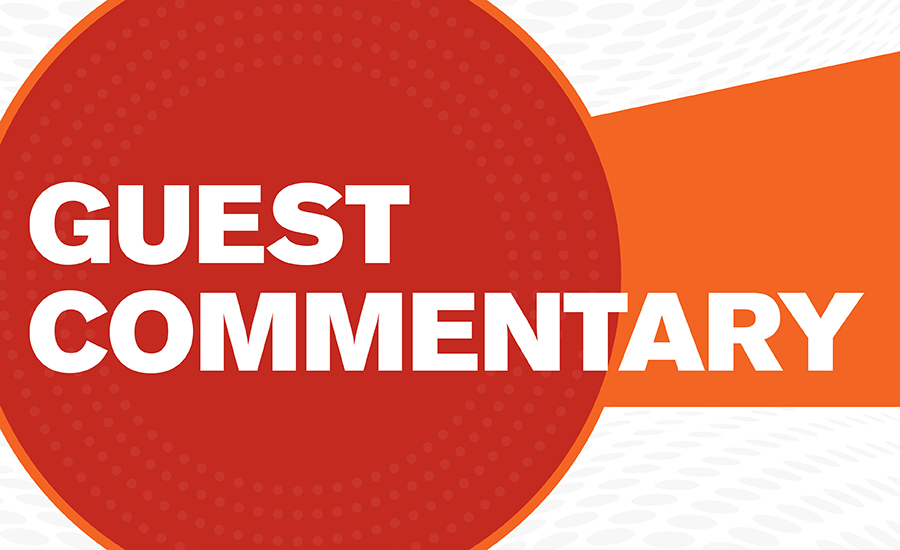The internal and external customer nomenclature has existed for decades. The external customers don’t work for your company; they’re the folks who pay for a new install or a repair. The internal customers are your co-workers. Serving the external customers with speed, courtesy, and professionalism is a surefire way to maintain cash flow continuity. But this internal/external relationship is deeper than just cash.
The depth involves a cause and effect relationship between internal and external service outcomes. Namely, that the benefactors of improved internal service are the external customers.
When I included teamwork and co-worker synergy in customer service seminars, the response was immediate. Company owners knew that communication issues existed among employees and that any improvement would be helpful. Their internal service situations transcended the stereotypical events that arise between field technicians and office staff. Much of the internal service deficiency was twofold: incomplete paperwork and a lack of follow-up.
Both above deficiencies result in the most wasteful and expensive phenomenon that plague heating and air conditioning contractors — it’s called rework.
Rework is a profit and efficiency killer. It’s what happens when a technician rationalizes that he is too busy to capture a part number or a unit serial number and then assumes that his co-workers will somehow make up for the missing details. The subsequent data capture requires more time and expense the second time around. The time wasted on rework could have been utilized serving the next customer to keep the cash flow momentum going.
My experience has taught me that rationalization is the No. 1 cause of rework. What is rationalization? It’s what happens when people devise self-satisfying, but incorrect, reasons for bad behavior. Rationalization causes people to justify behaviors in themselves that they wouldn’t tolerate from others.
Rework is also what happens when co-workers do not follow up with each other. It’s what happens when one employee assumes their co-worker already knows about a manufacturer’s parts order delay. It always pays to follow up with co-workers to ensure 100 percent information sharing — otherwise, co-workers assume the part is on time. The rule of information sharing goes like this: In the absence of the latest information, people revert to what they knew to be true. This is a dangerous phenomenon.
What could be worse than wasted time and greater expense? The answer is poor employee morale. Morale issues arise when an employee’s repeat offenses frustrate co-workers, especially when management fails to take corrective action. By now, you get the idea that the quality of internal service has a direct impact on an external customer’s service event.
It is management’s responsibility to fix internal service issues. During weekly staff meetings, employees should hear frequent reminders about the importance of three key terms: synergy, effectiveness, and efficiency.
Synergy is the creation of a whole that is greater than the simple sum of its parts.
In other words, when two or more people combine their efforts, they can accomplish more together than if they added their accomplishments separately. Co-workers get more done working together than working apart. In mathematical terms, a synergy formula is: 2 + 2 = 5.
Effectiveness means knowing how to prioritize and complete work that brings everyone closer to their goals. When one employee remains effective during a busy workload cycle, that employee’s example urges others to do likewise. On the contrary, when employees get upset and stressed out, then this is the example others see. All employees lead by example, regardless of their job title.
Efficiency is knowing how to do the work with economy so as not to waste time and effort. The most efficient co-workers follow standard operating procedure, such as adhering to their company’s telephone scripts. The script is a guide for what should be conveyed to customers. While phone professionals should never sound like they’re reading a script, they should have one handy. Why? Because a script enables them to focus more attention on how to convey a message. With proper pace of speech, articulation, and vocal melody, along with less verbal junk, team players convey a positive vocal image of their company and themselves.
So how do scripts add efficiency? The answer is that scripts help phone professionals get more work done right the first time with enhanced communication, fewer misunderstandings, and greater customer rapport. Since efficiency involves working with greater economy, minimizing waste and rework are priorities. The cumulative impact of saved minutes during a workday adds up to improved teamwork and greater profitability.
When I teach soft skills at trade schools, apprentices are taught that their future co-workers will be their primary customers. Among the various departments, such as service, sales, repair, installation, or finance, employees rely on each other for information. Good teamwork and co-worker synergy positively impact a company’s bottom line. Everyone wins, both internally and externally, when work gets done right the first time.
Contractors who inculcate more synergy, effectiveness, and efficiency in their company cultures will improve internal service and thereby boost service to external customers.
Want more HVAC industry news and information? Join The NEWS on Facebook, Twitter, and LinkedIn today!



Report Abusive Comment